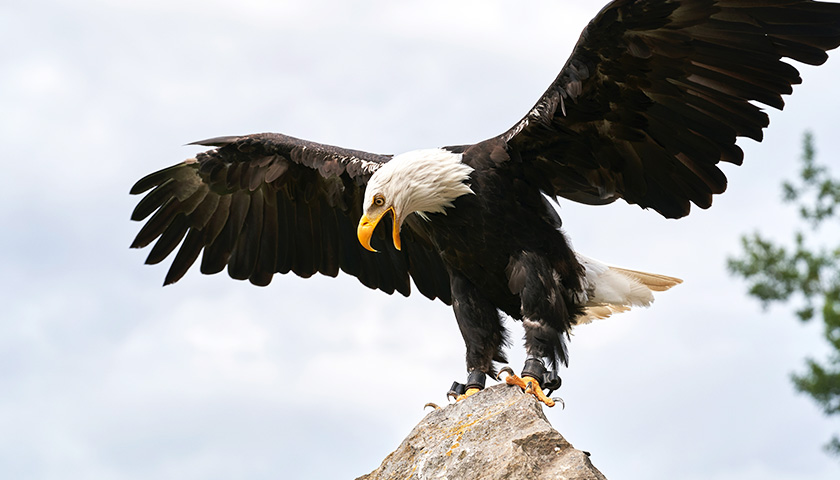by Anthony Hennen
Bald and golden eagles could get more protection as a proposed bill would greatly increase fines for killing the bird of prey.
Current law levels a penalty of only $200 for anyone convicted of killing the national symbol, though replacing the bird can run more than $2,000.
Senate Bill 709, sponsored by State Sen. Lisa Boscola, D-Bethlehem, would change that. If passed, it would increase fines for killing bald and golden eagles to $2,000, with the fine “designated towards replacement costs,” she noted in a legislative memo.
“While regulations and protective efforts have proved to be successful for the population’s rebound in recent decades, and they have officially been removed from the Commonwealth’s threatened species list, they still need to be further protected from unlawful takings,” Boscola wrote.
Pennsylvania removed the bald eagle from its endangered list to protected status in 2014, but two killings in 2015 grabbed Boscola’s attention.
“Talking to (Pennsylvania Game Commission) officials, $200 – it costs $2,500 to replace a bird,” Boscola said. “Well, the $200, nobody even charges individuals if they’re found at all.”
A sufficient fine, she said, could help spur better enforcement and cover replacement.
“I just had more respect for this majestic animal and I want it to live freely,” Boscola said, and help the restoration of eagle numbers in the commonwealth.
“Trying to safeguard the bald eagle – it’s our national symbol … it’s something to be respected,” she said.
Human threats to eagles aren’t unheard of, either.
Since 2018, the Game Commission has filed 10 charges for unlawfully taking or possessing eagles, PGC Spokesman Travis Lau said.
In May, a bald eagle was found dead in Washington County. Game officials identified a suspect who confessed to the crime.
Boscola’s office noted that Ohio and Delaware’s laws influenced her bill as well. Delaware’s fines for killing a bald or golden eagle ranged from $1,000-$10,000 for the first offense. In Ohio, a conviction carries a maximum of 180 days in jail or a $1,000 fine.
A higher fine, too, would give the Game Commission a stronger reason to protect eagles and “go after these people,” Boscola said.
– – –
Anthony Hennen is a reporter for The Center Square. Previously, he worked for Philadelphia Weekly and the James G. Martin Center for Academic Renewal. He is managing editor of Expatalachians, a journalism project focused on the Appalachian region.
Photo “Eagle” by Ingo Doerrie.








